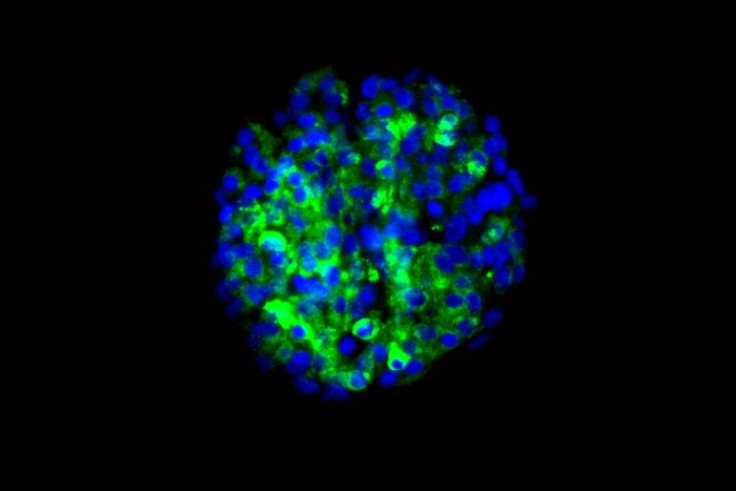Stem cells from Type 1 diabetics produce insulin-secreting cells

The cure for diabetes has eluded scientists, but researchers are moving closer to discovering new technologies that would end the suffering of people suffering from glucose impairment.
Scientists from Washington University School of Medicine in St Louis and Harvard University possibly have discovered a breakthrough for Type 1 diabetics. It is through the production of cells that could secrete insulin using stem cells that come from the patient’s own stem cells.
It represents a personalised approach to treating Type 1 diabetes who rely on daily insulin injections because their pancreas could not produce insulin. The researchers tested the stem cells in culture and in mice. For both cases, the cells secreted insulin upon encountering glucose.
Jeffrey Millman, assistant professor of medicine and biomedical engineering at Washington University School of Medicine, says the team replaced the damaged cells with new pancreatic beta cells, primarily tasked with storing and releasing insulin to control blood sugar.
Millman discloses that some researchers question if they should harvest the stem cells from diabetes patients which runs the risk of having defects that would prevent the team from helping the stem cells differentiate into beta cells. But he says there is a need for more research to ensure the beta cells made from stem cells of patients do not cause tumours to develop.
The diabetes expert believes the technology would be ready in three to five years. The stem cells would be implanted under the skin of a Type 1 diabetic in a minimally invasive procedure to allow the beta cells to the patient’s blood supply.
Millman says the techniques of the study, published in Nature Communications journal, would likely also work in other forms of diabetes such as Type 2, neonatal diabetes and Wolfram Syndrome.






